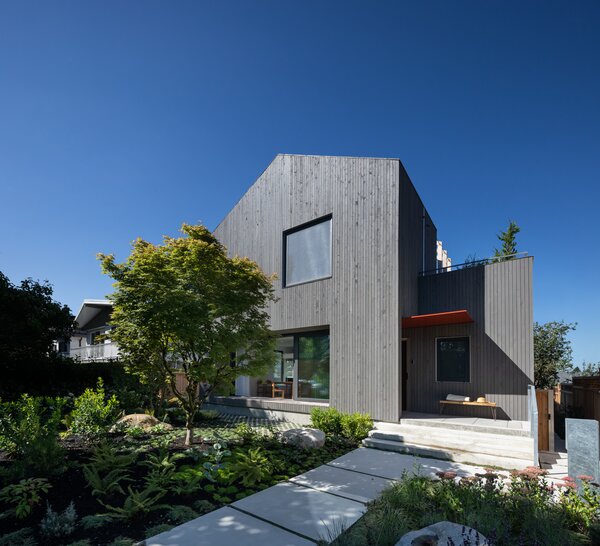
A siding project can improve the look and value of a house by giving it protection from the weather. There are important steps you should take, whether you are doing the project yourself or hiring an expert.
Selecting the right material is the first step to installing new siding. There are many options to choose from, including vinyl siding, brick siding, aluminum siding, and stone. Consider the design of your home, your climate and your neighborhood before choosing a siding material.
Next, prepare your walls for siding. Make sure the walls are straight. If the sides of the house are uneven, it will be difficult to install the siding in a uniform manner.

A key step in the installation process is using the right tools. A good set power tools can speed up the process and make it easier. A power saw, circular saw, or bench-mounted saw are excellent choices. You should invest in a fine-toothed knife for precise cuts. You can also use a high-powered drill to hold the siding in place as you drive the screws.
A water-resistant barrier is an additional piece of equipment. This will prevent moisture entering walls and create a flat surface. Also, gloves and sturdy ladders are essential.
Checking with your local hardware store will help you determine the right material for your home. A knowledgeable employee will be able guide you. You can also take a peek at online resources. Selecting a trustworthy contractor is the same. A good contractor will have solid credentials and will provide you with a warranty in case anything goes wrong.
Vinyl is the most basic siding material. Vinyl is usually the cheapest siding material because it doesn't require a lot of labor. Stone or brick are more expensive, but can give you a more refined look. Those materials, on the other hand, may be more labor intensive. You can also choose a more sustainable option, which can reduce the amount of energy you use.

Brick and stone are typically the most expensive siding materials. These materials can go up to $50/square foot. They may also cost more if you need them to be sanded down, painted, or replaced. You might pay more for a high-quality brick or stone product.
Installing siding on a home is a major job that can result in poor results. To get the most out of your investment, it is recommended to hire a professional. A contractor will be able to provide precise measurements and advise you on how to make the most out of your siding. He will explain the advantages and costs of different siding types, as well.
Installing siding yourself can help you save money. A typical homeowner pays about $12 for every square foot siding. This can be a great way for DIYers to save money. An hourly rate can be paid if you need a professional to do your job.
FAQ
How many times should I change my furnace's filter?
The answer will depend on how often your family is going to use your heating system. You might consider changing your filter less frequently if you are likely to be away from your home for extended periods during the cold months. However, if you rarely go out of the house, you may be able to wait longer between changes.
A furnace filter should last for approximately three months. This means that you should replace your filters every three months.
You can also consult the manufacturer's recommendations regarding when to change your filters. Some manufacturers suggest changing your filter every heating season. Others recommend waiting until you see dirt buildup.
How should home renovations take place?
When renovating your home, the first thing to do is decide where everything should go. If you plan to sell your home soon, then you should think about how you would like to present your home to potential buyers. Next, think about how you want your living space, including the kitchen, bathroom and living room. Once you have decided which rooms you want to renovate, you should start looking for contractors who specialize in those areas. After you have hired a contractor to work on your project, it is time to get started.
Which room should I renovate first?
The kitchen is the heart of any home. It is where you spend your most time cooking, entertaining, eating, and relaxing. If you're looking to make your kitchen more functional, attractive and beautiful, this is the place for you!
Bathrooms are an important part any home. It provides comfort and privacy while you take care of everyday tasks, such as bathing, brushing teeth, shaving, and getting ready for bed. This will make these rooms more functional and beautiful.
What should I think about when buying a house?
Be sure to have enough money in reserve for closing costs before you purchase a new home. You might consider refinancing your mortgage if you don't have enough money.
What should I do first in a house renovation?
Cleaning out clutter inside and out is the first step to fixing up a house. Next, clean out any moldy areas. Next, clean the exterior surfaces and paint.
Statistics
- Design-builders may ask for a down payment of up to 25% or 33% of the job cost, says the NARI. (kiplinger.com)
- They'll usually lend up to 90% of your home's "as-completed" value, but no more than $424,100 in most locales or $636,150 in high-cost areas. (kiplinger.com)
- A final payment of, say, 5% to 10% will be due when the space is livable and usable (your contract probably will say "substantial completion"). (kiplinger.com)
- Most lenders will lend you up to 75% or 80% of the appraised value of your home, but some will go higher. (kiplinger.com)
- On jumbo loans of more than $636,150, you'll be able to borrow up to 80% of the home's completed value. (kiplinger.com)
External Links
How To
Five Things You Must Know Before Starting Your Home Renovation
-
Do you really want this? You will need help if you are going to embark on a major home improvement project such as renovating your bathroom, kitchen, or building a new house. If you aren't confident enough to take on such a daunting task, you may want to reconsider. It will take up much of your time and money. There won't be any real benefits. Instead, hire someone who has experience in this field to assist you. They'll save you a lot of hassle and stress, and you'll still end up with a beautiful space to live in.
-
How much should I spend? - This one might seem obvious, but spending too much on a renovation project could actually make matters worse. This is because most of the cost will be recouped at the end. If you have a budget in place, stick with it. If you don't, you might end up spending a lot of money and not receiving anything.
-
Do I choose to hire professionals or DIY? - There's no right or wrong answer here, but we'd recommend hiring professional tradespeople if you can afford them. Their advice will be invaluable in helping you decide how to proceed. They will install the plumbing correctly, take care of safety, and offer a guarantee after they have finished their work. DIY projects require lots of trial and errors, which can mean you'll have many lessons to learn. You will also need to deal with the many issues that arise during the process.
-
Can I afford it Do not underestimate the costs of a renovation. Even if the project seems manageable, it could prove costly and you will need to borrow money. When you want to sell your existing property quickly after the renovations are complete, you will need to account for the price of selling it.
-
Where should I begin? - When it comes to choosing where to start, there's no right or wrong place. We recommend that you pick something that you are passionate about. This will help you stay motivated and make it less likely that you procrastinate. Avoid areas that require constant maintenance. You shouldn't redecorate your living space if you are constantly cleaning up dirt and dust.